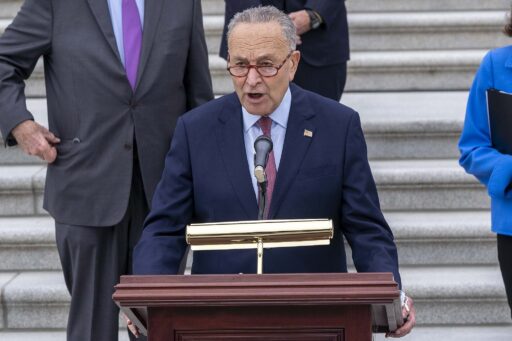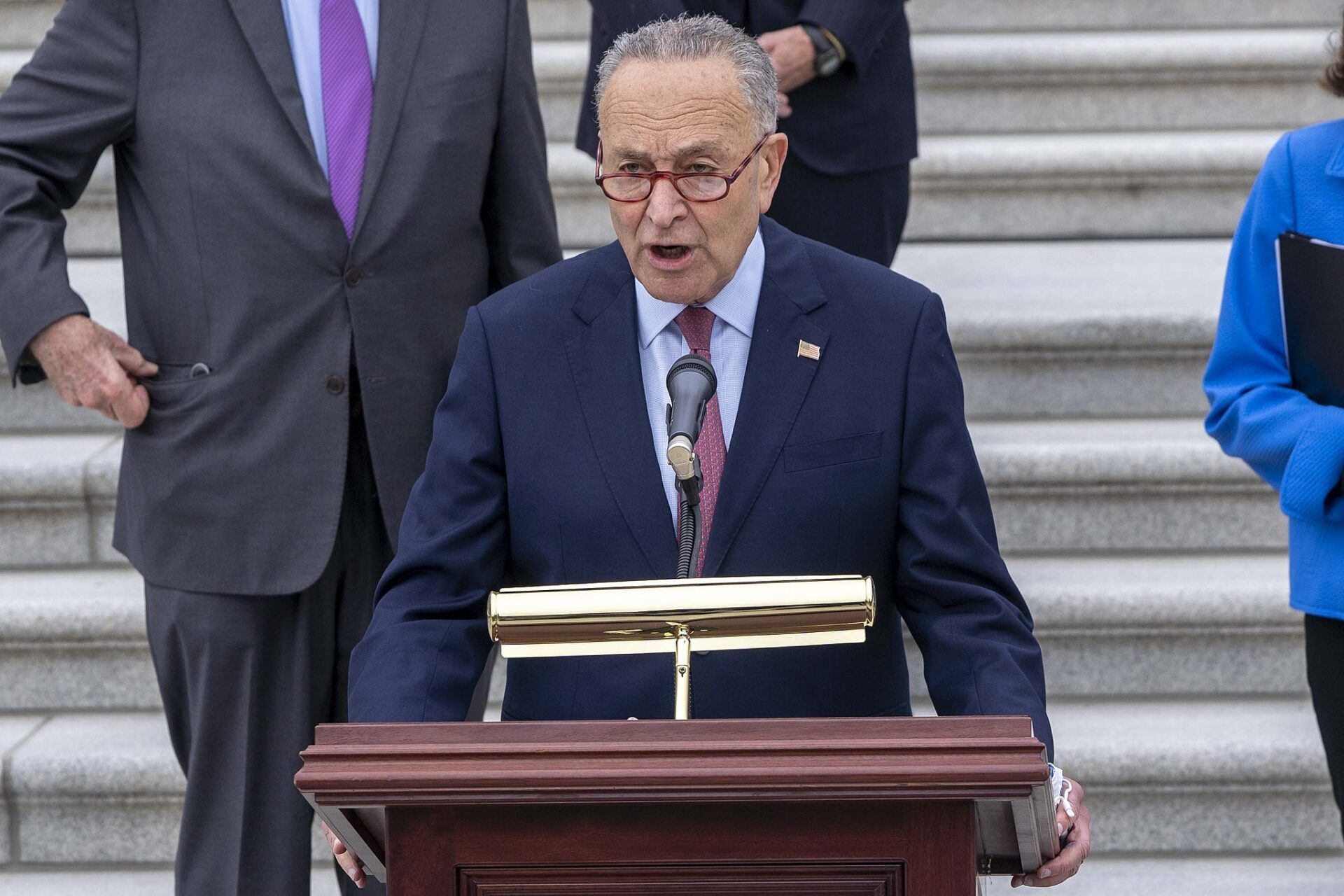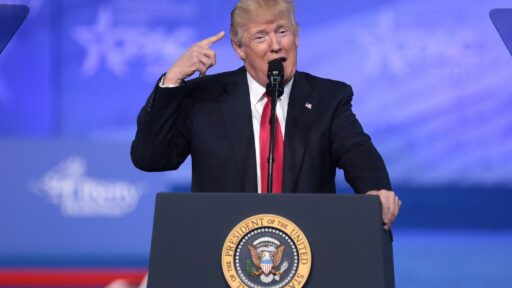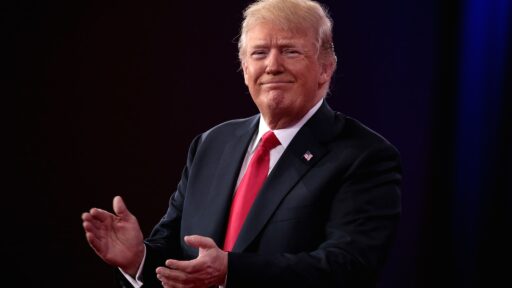Democrats will do anything to keep the pressure on Trump.
Senate Majority Leader Chuck Schumer, a Democrat from New York, recently unveiled plans to introduce new legislation aimed at addressing former President Donald Trump’s post-2020 election conduct. Schumer’s proposed bill is designed to reclassify Trump’s actions concerning the election results as “unofficial,” effectively stripping away the legal immunity protections that a recent Supreme Court decision had afforded him.
In a passionate address on the Senate floor, Schumer characterized Trump’s efforts to contest the election outcome as “acts of election subversion,” emphasizing the critical juncture at which American democracy currently finds itself. He criticized the Supreme Court’s ruling on July 2, which upheld broad prosecutorial immunity for actions taken by a sitting president while in office. Schumer drew parallels to past controversies involving presidential conduct, citing the infamous defense by former President Richard Nixon that “when the president does it, that means it’s not illegal.”
Schumer expressed profound concern over what he perceives as the court’s granting of unchecked powers to Trump, likening it to placing a figurative crown on the former president’s head. He warned of potential future implications, arguing that such decisions could pave the way for further divisive rulings and exacerbate the political turmoil sparked by the events of January 6, 2021.
Responding to Schumer’s announcement, Brian Hughes, a senior advisor to Trump’s campaign, condemned the proposed legislation as a partisan maneuver aimed at undermining the constitutional role of the Supreme Court. Hughes accused Schumer and other Democratic lawmakers of weaponizing the legal system to target political opponents, labeling the efforts as corrupt and detrimental to the principles of governance.
Schumer’s initiative follows similar legislative efforts by prominent Democrats like Representative Adam Schiff of California, who crafted the Protecting Our Democracy Act in 2023. This comprehensive bill addresses a range of issues including presidential oversight, emoluments, and ensuring accountability across the executive branch. Additionally, Senator Sheldon Whitehouse of Rhode Island has also been active in proposing measures aimed at addressing perceived deficiencies in Supreme Court oversight and accountability.
As the legislative process unfolds, Schumer’s proposal is expected to generate significant debate and scrutiny, reflecting broader concerns about the balance of powers within the federal government and the implications of judicial decisions on presidential conduct. The outcome of these efforts could have far-reaching consequences for the future of presidential accountability and the rule of law in the United States.







